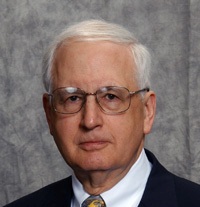Wednesday, February 13, 2013 | 5:30 PM EST - 5:30 PM EST
Since 2007, the National Committee has run a series of multi-day briefings for mid-career officers in the United States armed services who have been fast-tracked for top leadership positions. The purpose of these seminars is to provide the participants with a general background on China and to brief them on issues not conventionally covered in their military training – such as China’s domestic politics, economic development, business and trade, foreign policy, rule of law, growth of civil society, environmental concerns and climate change, energy, and the use of soft power.
The most recent of these sessions was held February 11-14 in Honolulu, Hawaii under the sponsorship of the U.S. Pacific Command and in partnership with the Asia-Pacific Center for Security Studies. Taking advantage of Ambassador J. Stapleton Roy being in Honolulu as part of this program, the National Committee partnered with the East –West Center on a public program on February 13 featuring Ambassador Roy. He spoke to an audience of about 200 on “Strategic Challenges for the U.S.-China Relationship.”
BIO:
Ambassador J. Stapleton Roy retired from the Foreign Service in January 2001 after a career spanning 45 years with the U.S. Department of State. A fluent Chinese speaker, Mr. Roy spent much of his career in East Asia, where his assignments included Bangkok (twice), Hong Kong, Taipei, Beijing (twice), Singapore, and Jakarta. He also specialized in Soviet affairs and served in Moscow at the height of the Cold War. Mr. Roy rose to become a three-time ambassador, serving as the top U.S. envoy in Singapore (1984-86), the People’s Republic of China (1991-95), and Indonesia (1996-99). In 1996, he was promoted to the rank of career ambassador, the highest rank in the Foreign Service. Ambassador Roy’s final post with the State Department was as assistant secretary for Intelligence and Research.
In January 2001, Ambassador Roy joined Kissinger Associates, Inc., a strategic consulting firm, as managing director where he worked from offices in New York City and Washington, D.C. He is currently the director of the Kissinger Institute on China and the United States at the Woodrow Wilson International Center for Scholars.
Ambassador Roy was born in Nanjing, China of American missionary parents. In 1956, he graduated magna cum laude from Princeton University, where he majored in history and was elected to Phi Beta Kappa. He has done post-graduate study on the Mongolian language, history, and culture at the University of Washington, attended the U.S. Army Russian Institute in Garmisch-Partenkirchen and is a distinguished graduate of the National War College
